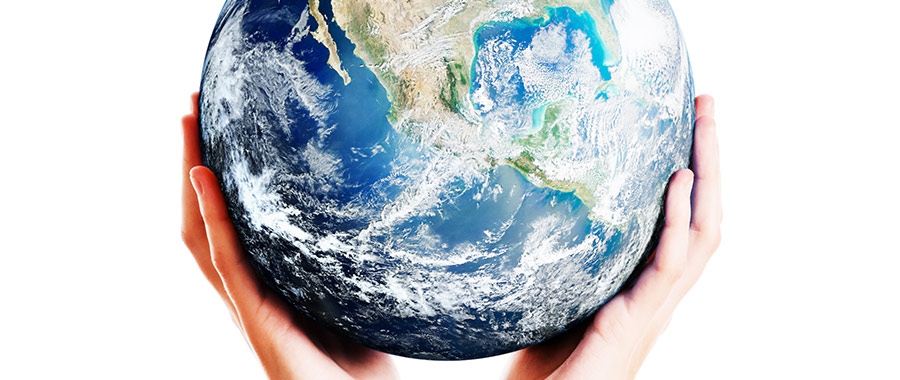The views expressed in our content reflect individual perspectives and do not represent the authoritative views of the Baha'i Faith.
When did our so-called “modern age” begin? We all think of ourselves as modern, but didn’t everyone who ever lived think that way, too?
Many now define the Modern Age as a period beginning in the last quarter of the 20th century, around 1975, when the manipulation of information by computers and computer networks began.
By now, we all understand that computers have revolutionized the acquisition of knowledge, its use and its application. That power ushered in this modern age.
Although we’ve created a technological revolution, human relationships with other humans have stayed roughly the same. We have not yet accepted everyone from every race and nation into the human family. Our basic societal ethic of interaction, “You don’t bother me, and I won’t bother you,” has long been the status quo. That morphed fairly recently into, “You can do what you want to do as long as it doesn’t hurt yourself or someone else.”
Have all the modern technologies developed since 1975 helped us unify as a human race? Definitely yes—the world has become much smaller and more accessible. Yet as long as that selfish “I only need to take care of myself,” attitude prevails, the Baha’i teachings say, we will be stymied from realizing our true human potential:
We should continually be establishing new bases for human happiness and creating and promoting new instrumentalities toward this end. How excellent, how honorable is man if he arises to fulfil his responsibilities; how wretched and contemptible, if he shuts his eyes to the welfare of society and wastes his precious life in pursuing his own selfish interests and personal advantages. Supreme happiness is man’s, and he beholds the signs of God in the world and in the human soul, if he urges on the steed of high endeavor in the arena of civilization and justice. – Abdu’l-Baha, The Secret of Divine Civilization, pp. 3-4.
As the Baha’i writings point out, we need a wider, more inclusive loyalty, a commitment toward the ideal of establishing a just, peaceful civilization—which will help us solve our local, regional and global problems and live in harmony and cooperation. We do need to take care of ourselves, our families, solidify our jobs and place in society, of course—but not at the expense of others, not for solely personal advantages, and not by burying our heads in the sand and closing our eyes to others’ cries for help.
The Guardian of the Baha’i Faith, Shoghi Effendi, wrote about establishing this new ethic of the oneness of the human family , saying that:
It calls for a wider-loyalty, which should not, and indeed does not, conflict with lesser loyalties. It instills a love which, in view of its scope, must include and not exclude the love of one’s own country. It lays, through this loyalty which it inspires, and this love which it infuses, the only foundation on which the concept of world citizenship can thrive, and the structure of world unification can rest. It does insist, however, on the subordination of national considerations and particularistic interests to the imperative and paramount claims of humanity as a whole, inasmuch as in a world of interdependent nations and peoples the advantage of the part is best to be reached by the advantage of the whole. – The Promised Day Is Come, p. 122.
“The advantage of the part is best reached by the advantage of the whole:” contemplate that concept for a moment. Can we say that this concept also applies to one’s dealings with his or her fellow human beings? Do we decide not to love another person because of their skin tone, or education level, or ethnic origin, or nationality, or religion? Or can we love another person simply because of their humanity?
By looking beyond these outward traits, these physical characteristics combined with history, love can come to the surface, the same love Christ had for his apostles and the Jewish people; the same love that he sacrificed his life for on the cross; the same love demonstrated by all the prophets for their followers and for the people of the age in which they appeared. That love is real and exists. It only need be summoned from our hearts to appear:
… through the zeal and ardour of the pure of heart, the darkness of hatred and difference will be entirely abolished, and the light of love and unity shall shine; this world shall become a new world; things material shall become the mirror of the divine; human hearts shall meet and embrace each other; the whole world become as a man’s native country and the different races be counted as one race. – Abdu’l-Baha, Abdu’l-Baha in London, p. 38.
















Comments
Sign in or create an account
Continue with Googleor